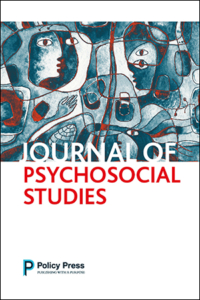The resurgence of authoritarian tendencies in countries that have already suffered the grave consequences of unchecked power poses a question: why do people vote for a leader who abuses, disrespects and mistreats them and acts against their interests?
Political abuse is understood as the deliberate misuse of a political position for the benefit of power itself, and the use of it for institutional discrimination and maltreatment of dissenting and marginalised groups. The most common forms of authoritarian leadership include dictatorships and totalitarianism.
There may be many reasons why people elect a charismatic and populist authoritarian for the first time. The second time, however, they know what they are getting into.
The psychological impact of political abuse is in many ways similar to interpersonal abuse, which is notorious for generating intrinsically complicated relationships between the abuser and victim. Trauma studies consistently demonstrate that even brief exposure to interpersonal, institutional or political abuse profoundly alters how people relate to themselves and others, and shapes social cognitions for generations to come.
Such alterations in social perceptions can contribute to the pervasiveness of political abuse. Resultant distrust of public officials, political apathy and learned social helplessness discourage citizens from taking responsibility for and investing in a collective future. The COVID-19 pandemic has also demonstrated that trust in a government is vital to societal resilience in times of crisis.
A personality cultism or the worship of an abuser who cannot do any wrong can be equally recognised in other instances of abusive power and control, such as traumatic bonding in interpersonal abuse and destructive cults or so-called cults of hatred.
Like other abusers, authoritarians seek to impose control over people’s behaviour and mind. They use gaslighting, brainwashing, fearmongering and intimidation to coerce subjects into obedience. They are often good at sensing and channelling collective anger, fear and resentment. Often fragmented, inconsistent and internally conflicted, they foster chaos and divisiveness in society and instill a siege mentality to justify political violence. In the same way as an abuser blames the victim for ‘provocation’, dictators conveniently designate a ‘public enemy’, usually an already marginalised group portrayed as undermining the nation’s wellbeing and blamed for leadership failures. Attacks on independent media create an echo chamber – the breeding ground for conspiracy theories.
Gaslighting tactics make people doubt their perceptions and judgment and question their moral values and beliefs. Mind games aim to blur boundaries between reality and fantasy and create a reality of its own. In this alternative world, abuse appears normal and justified, and facts no longer matter. Those who choose to adapt by seeking a rational explanation for such a leader’s actions are susceptible to identifying with the perpetrator, normalising abuse and violence, and eventually losing the ability to recognise abuse and abusers as such.
Personal experiences of humiliation, fears and threats are quickly forgotten and replaced with political myths, such as a popular myth of a dictator or an effective manager. Another common myth, that of the Golden Age, refers to a promise to reclaim the long-lost glory and make the nation great again. In history, such a pledge has never worked, as it is impossible to reverse time. In the past, many dictators used similar slogans, which always resulted in self-destruction but not before many others’ lives were destroyed. There are other political myths and conspiracy theories common across cultures.
Such leaders often position themselves as a saviour who can bring justice and protection from the hostile and threatening world. Often, we fail to recognise early enough the tectonic shifts in the collective psyche as we slide into this self-serving and encapsulated alternative reality.
But we must become concerned about a society’s political and social health when the questioning of a political leader equates to blasphemy; when collective loyalties overwrite individual and family values; and when health care, science, education and sports become politicised. In the past, vilifying LGBTQ people has been one of the first indicators of emerging self-destructive trends in society.
Is there anything that can be done? Studies of the psychological impact of totalitarianism across the world strongly suggest that we must not place all the blame on the leader: kings are played by their entourage. They cannot do anything without the support of an indoctrinated or passive majority, often hard-working, good people who just want to be happy, have good jobs and raise children. It means that we need to start looking at ourselves and the choice and responsibility we have to prevent the recurrence of political victimisation and create an abuse-free future of our liking.
We must employ strategies to help us to recognise and resist political manipulations, indoctrination and brainwashing, from maintaining complex and multidimensional world views, staying true to our core moral values and using multiple sources for our information.
Elena Cherepanov, PhD is an independent consultant specialising in global mental health. Her research focuses on cultural and transgenerational trauma, psychological impact of political violence, and response to complex humanitarian emergencies. Dr. Cherepanov has over 20 years of humanitarian work experience and is the author of over 60 papers and books translated in different languages.
 Do dictators have borderline personality? And does it matter? by Elena Cherepanov from the Journal of Psychosocial Studies is available on Bristol University Press Digital.
Do dictators have borderline personality? And does it matter? by Elena Cherepanov from the Journal of Psychosocial Studies is available on Bristol University Press Digital.
The article is available for purchase from Bristol University Press Digital. You can also ask your library to subscribe or sign up for a free trial.
Follow Transforming Society so we can let you know when new articles publish.
The views and opinions expressed on this blog site are solely those of the original blog post authors and other contributors. These views and opinions do not necessarily represent those of the Policy Press and/or any/all contributors to this site.
Image Credit: Andrea De Santis on Unsplash


